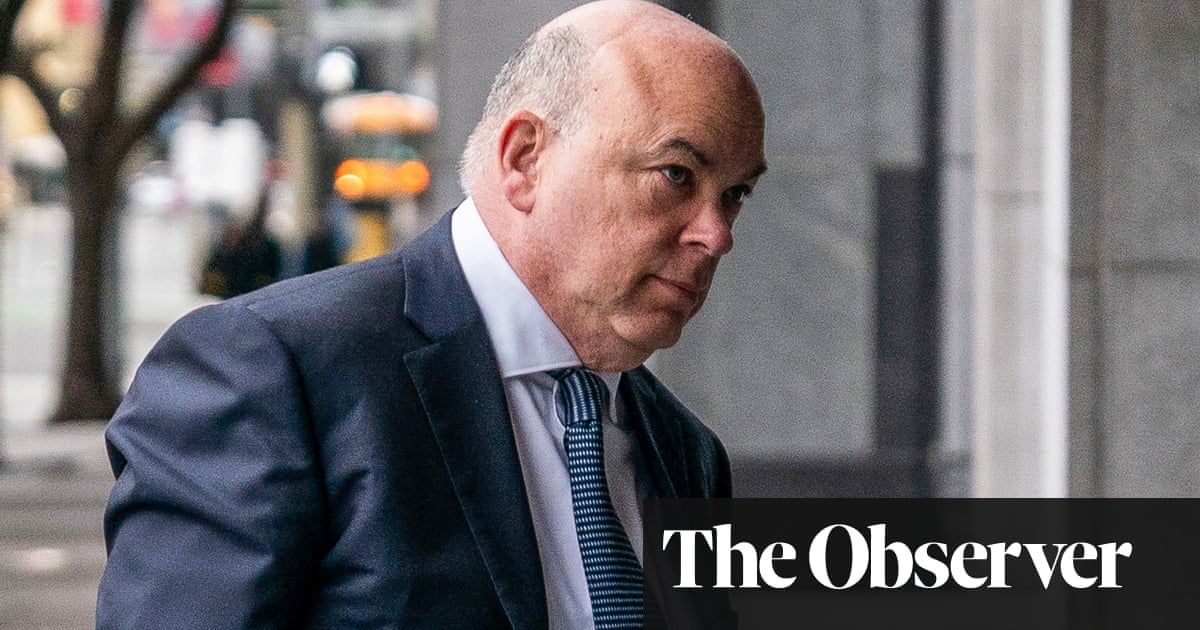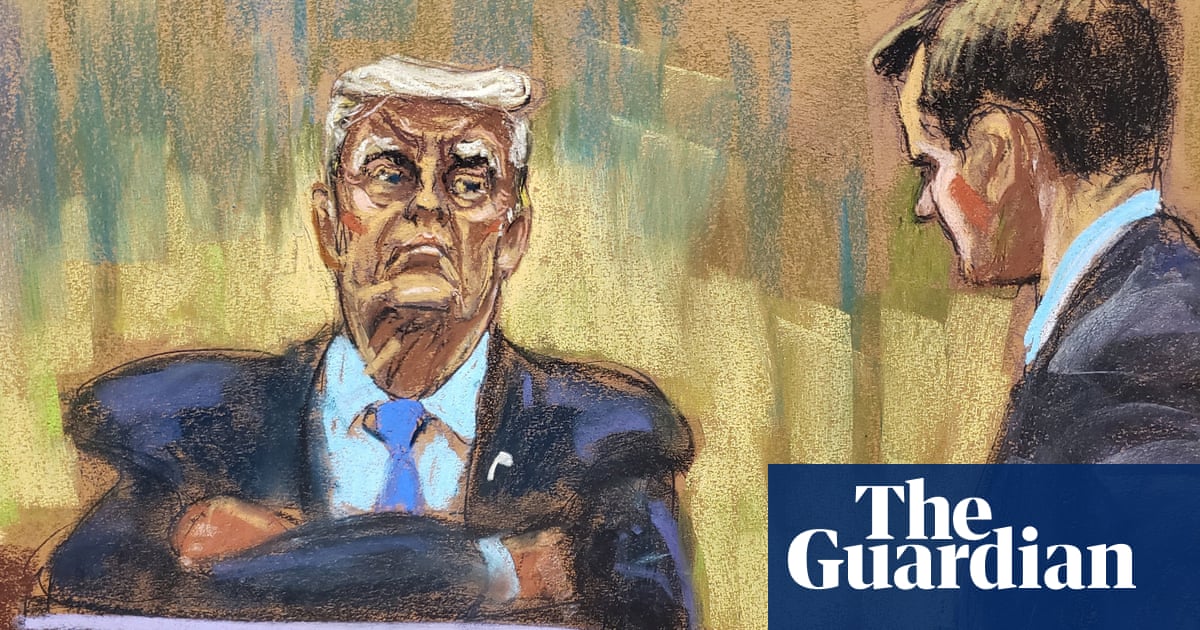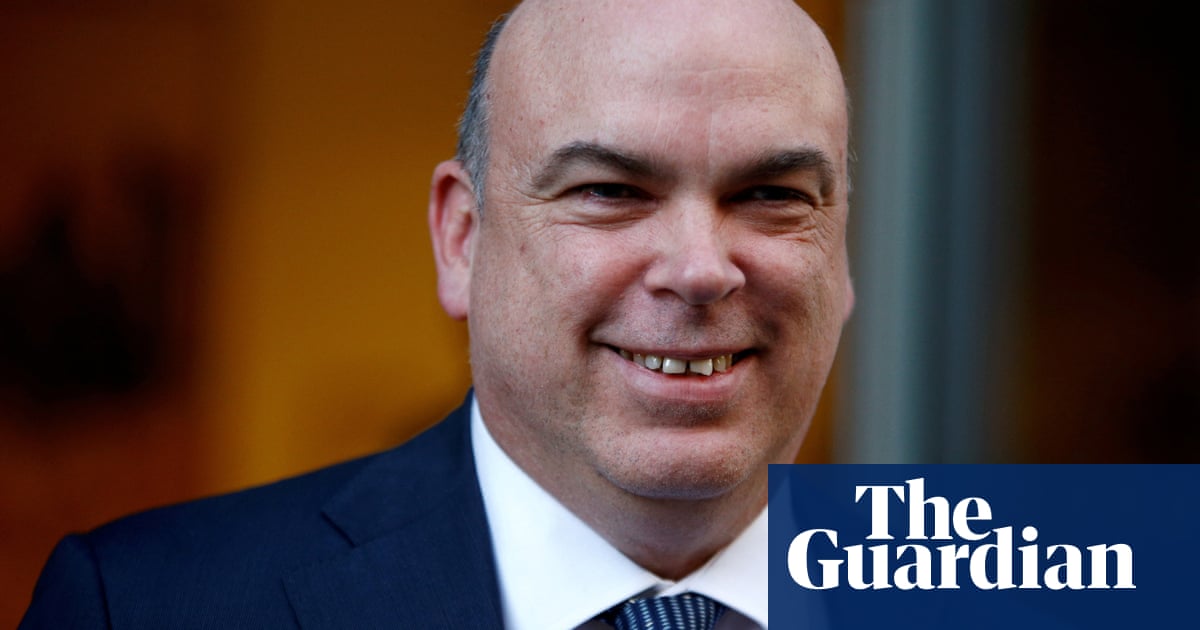
At the height of his career, Mike Lynch – once the UK’s leading tech entrepreneur, hailed as “Britain’s Bill Gates” – sold his software firm to a Silicon Valley giant in an $11bn (£8.6bn) deal. Last Monday, more than a dozen years later, that deal became the centrepiece of a trial in San Francisco.
Lynch has been charged with 16 counts of wire fraud, securities fraud and conspiracy by the US authorities, who claim that Hewlett-Packard’s troubled acquisition of Lynch’s Autonomy was built on lies. If convicted, he faces up to 25 years in jail. He has pleaded not guilty.
The trial will be intensely focused on what did, and did not, take place in 2011, the year HP bought Autonomy. Over the coming weeks, jurors will hear from dozens of witnesses in a windowless, wood-panelled courtroom just up the road from the San Francisco skyscraper Autonomy once occupied.
The man once lauded as “Britain’s Bill Gates” spent the first week of the trial quietly listening as federal prosecutors picked over his former empire. Occasionally he turned to his laptop, twiddled with his pen or shared a word with his lawyers. Even more occasionally, he smiled.
1. It’s 2011 all over again
David Cameron was still in No 10, Barack Obama was in the White House, and cinemagoers were flocking to the climactic Harry Potter film.
Lynch has long argued the takeover was undone by HP’s mismanagement of Autonomy after its completion but, significantly, the judge, Charles Breyer, has insisted the trial’s focus should not include the aftermath of the deal.
The challenges the passage of time has created are evident. Explaining financial transactions and complex discussions from well over a decade ago to a jury coming to this case fresh will be no mean feat. For example:
“I can’t give you a specific date for certain,” the first witness, the former Autonomy employee Ganesh Vaidyanathan, remarked on Tuesday when asked about the specific timing of a conversation in 2010.
2. A simple foundation
So prosecutors began by highlighting a single meeting.
In early 2011, Lynch flew to the US and “spun a fabulous tale of corporate success” in a meeting with HP executives at the company’s HQ in Palo Alto, the assistant US attorney Adam Reeves told the court. Desperate to diversify from hardware into software, HP “ate it up”, according to Reeves, who said the meeting had been “the scene of an $11bn fraud”. Through a “variety of accounting tricks” and deals that “made no sense, unless you were trying to falsely inflate your revenue”, the government alleges Autonomy constructed “an elaborate, multilayered, multiyear fraud”.
Driven by money and power, Reeves claimed, Lynch lied routinely to analysts, investors and, eventually, HP. The company’s auditors were also lied to “again and again” over two and a half years, he alleged.
Amid a flurry of technical details, Reeves encouraged the jury not to worry about “a lot of jargon” they might hear. “Keep your eye on the dollars,” he said. “Keep asking yourself: does this deal make any sense?”
Breyer has warned jurors not to be swayed by personal likes or dislikes. That has not stopped the prosecution and defence from painting two pictures of Lynch.
The government described a “dominating, controlling, intimidating” chief executive who, as Reeves put it during opening argument, ran Autonomy “with an iron fist”.
Meanwhile, the tycoon’s lawyers spoke of a talented student born to poor Irish parents who grew up to be a brilliant inventor. Yes, he was a hard-charging boss with “exacting standards”, conceded Reid Weingarten, one of Lynch’s attorneys. But many “relished the challenge of working with him”.
In an effort to cement this impression in jurors’ minds, Lynch’s team will take the unusual step of putting him on the stand. “We believe the better you know him, the better off we are,” said Weingarten. While prosecutors refer to “Dr Lynch”, on account of Lynch’s PhD, the businessman’s lawyer pointedly avoids the honorific. “To me, he’s Mike,” Weingarten said.
The prosecution is trying to persuade the jury that Lynch is guilty beyond reasonable doubt. His lawyers, attempting to dismantle the charges, are leaning into the nuance of this case. The government’s argument was “black and white”, Weingarten told the court. “And you know what? You’re going to see in this trial that ain’t the way the world works. The world works in grey. The world is complicated.”
The defence claims the evidence is insufficient. Prosecutors might claim there was fire, Weingarten said, but “you will only see smoke”.
Lynch’s team dispute the suggestion he was a micromanager, pulling strings attached to every corner of Autonomy. Rather, they argue, his approach was to recruit talented managers, and delegate the minutiae. Weingarten claimed Lynch had “very little involvement” in day-to-day accounting.
Lawyers for Lynch also pushed back hard against the idea that HP was a victim. In “dire straits”, this company saw Autonomy as a “Hail Mary”, according to them – and, having persuaded a reluctant Lynch to sell his firm for a hefty price, raced to seal a deal it feared could be usurped by a rival bidder.
While the spotlight is on Lynch, he is not the only defendant on trial. Steve Chamberlain, a former finance executive at Autonomy, has pleaded not guilty to 15 counts of wire fraud and conspiracy. He stands accused of misleading the firm’s auditors.
It would be “unfair”, according to Lynch’s lawyers, to hold one man – in this case, their client – responsible for all wrongdoing inside a large multinational.
Sushovan Hussain has been mentioned regularly. As chief financial officer, he was Chamberlain’s boss and a close ally of Lynch. Hussain was convicted in 2018 on 16 counts of wire and securities fraud, and jailed for five years starting in 2019.
The government will call dozens of people who worked with, and within, Autonomy as it builds its case. Among them is Léo Apotheker, the HP boss who agreed to buy Autonomy. Meg Whitman replaced Apotheker weeks after the announcement, later sacked Lynch, and was in charge when HP wrote down the deal’s value by $8.8bn. Whitman, now US ambassador to Kenya, is not expected to appear.
Witnesses from Deloitte, Autonomy’s auditor, will give evidence. Lynch’s team has pledged to challenge “every occasion” the accounting firm claims it was misled.












